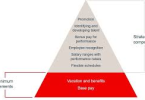Picture this. Another morning battle to get your child ready for school. They drag their feet, complain about feeling sick, or simply refuse to get dressed. You know something isn’t right, but you can’t quite put your finger on what’s wrong.
For many families, traditional schooling works brilliantly. But for others, home schooling online becomes the answer they never knew they were looking for. The rise of digital education has created genuine alternatives for children who need something different.
Spotting whether your child might flourish in an online environment takes careful observation. Sometimes the clues are right in front of you. Other times, you need to dig deeper to understand what’s really going on.
They Process Information Differently
Every child has their own learning rhythm. Some children absorb mathematical concepts instantly but struggle to read quickly enough for timed tests. Others understand complex topics within minutes but need ages to write down their thoughts.
Traditional classrooms operate on fixed timetables. Twenty-five minutes for this subject, thirty-five minutes for that one. Children who don’t match this pace often feel lost or frustrated.
Have you noticed your child saying the teacher goes too quickly? Or maybe they finish their work early and spend ages waiting for everyone else to catch up? These timing mismatches create unnecessary pressure.
Online home schooling lets children spend two hours on a tricky concept or race through familiar material in twenty minutes. This control over learning speed often transforms anxious learners into enthusiastic ones.
Parents often tell me their child stopped feeling “thick” or “slow” once they could learn at their own speed. That’s quite something to witness.
Social Situations Cause Real Distress
Not all bullying looks like playground fights or name-calling. Sometimes it’s being ignored during group work. Getting picked last for teams. Having nobody to sit with at lunch.
Your child might be naturally shy and find large groups overwhelming. Perhaps they’re sensitive and take playground comments to heart more than most. Some children simply process social situations differently and struggle with the unwritten rules of school friendships.
When worrying about social acceptance takes up most of your child’s mental energy, there’s little left for actual learning. Their brain stays focused on survival rather than absorbing information.
A calmer learning environment often helps these children rediscover their confidence. Without constant social pressure, they frequently remember why they used to enjoy learning.
Quality online programmes maintain academic standards through structured curricula like Pearson Edexcel whilst removing the social stress that can derail education.
Your Family Needs Scheduling Freedom
Early morning swimming training. Weekend music competitions. Business travel that takes the family abroad for months. Some families simply can’t squeeze into the rigid structure of traditional school timetables.
If your child has talents requiring serious time investment, regular school schedules can feel impossible. Missing school for competitions creates anxiety about falling behind. Pre-dawn training sessions leave children exhausted for morning lessons.
Online learning builds education around your family’s life rather than forcing your life around school terms. Children can complete coursework during travel, adjust timetables around training, and pursue their interests without academic penalties.
This flexibility also supports families facing changes. House moves, job relocations, or temporary living arrangements become less disruptive when education travels with you.
Military families particularly benefit from this continuity. Children don’t lose months of progress every time they relocate.
Individual Support Makes the Difference
Class sizes keep expanding whilst teacher resources shrink. Even brilliant educators struggle to give meaningful individual attention to thirty students.
Some children need mathematical concepts explained through visual methods. Others require extra practice with reading comprehension. A few learn best through hands-on experiments rather than textbook theory.
When teachers manage large groups, individual needs often get overlooked. Children fall through gaps that nobody intended to create.
Does your child return home with unanswered questions? Do they struggle with concepts that might be clearer with personal explanation? These understanding gaps grow bigger over time.
Strong online programmes feature small class sizes with direct teacher contact. The synchronous learning approach means children aren’t working in isolation but receive immediate feedback when they need it most.
Teachers can spot confusion quickly and address it before it becomes a serious problem. That’s the difference between falling behind and staying confident.
School Has Become a Source of Dread
Education should challenge children appropriately, not overwhelm them completely. When school becomes something to endure rather than enjoy, changes need considering.
Physical symptoms often appear first. Frequent headaches on Sunday evenings. Mysterious stomach aches that disappear during holidays. Sleep problems that only happen on school nights.
Behavioural changes follow. Increased moodiness after school. Withdrawal from family activities. Reluctance to discuss anything about their day.
Some children develop school refusal behaviours. Others push through but suffer emotionally. Neither situation serves their educational development.
The switch to online learning often provides immediate relief. Children sleep better when they’re not dreading tomorrow. They engage more readily when education feels safe again.
Parents frequently report their child’s real personality returning after leaving traditional school. The curious, happy child they remember emerges from under layers of school-related anxiety.
Making This Important Choice
Choosing online home schooling isn’t abandoning education. It’s finding the educational approach that actually works for your particular child.
Success depends on matching your child’s learning style with the right programme. Look for schools offering live instruction rather than isolated computer activities. Find programmes with qualified teachers who understand different learning needs.
Quality online education maintains rigorous academic standards whilst addressing individual requirements. Children often achieve better results when they feel emotionally supported and learn at appropriate paces.
Your child’s education matters too much to leave to chance. If traditional school isn’t working, exploring alternatives shows proper parental advocacy.
The right educational environment can transform a struggling student into a thriving learner. Sometimes that environment exists beyond traditional classroom walls.
This decision ultimately belongs to your family. Trust your instincts about what your child needs most.







